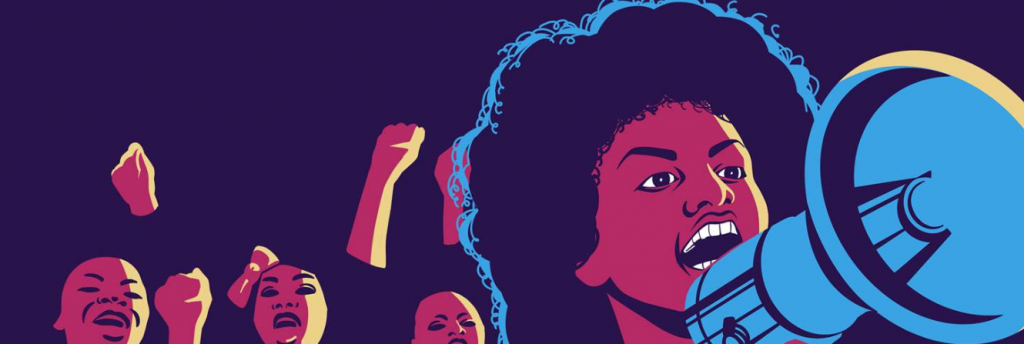As analysed by the Georgetown Law Center on Poverty and Inequality’s study entitled “Girlhood Interrupted: The Erasure of Black Girls’ Childhood”, the study identifies childhood as a social construct defined by the predominant presumption of innocence. It is an ever-changing phase of life where children experience an ongoing process of social and psychological development. As a result, minors are therefore afforded special legal status. This position is further legitimised by The Child Justice Act of 2008 in South Africa, which aims to keep child offenders away from the formal criminal justice system, through means of diversion where possible, and only turn to criminal justice as a means of last resort. Children, therefore, are to be held to a lesser extent culpable for their actions due to their ongoing social/psychological development. However, this only occurs if the rights of children are recognised and upheld by society. Socially: race, gender, sexuality and age, in particular, the stage of development a child is in, that is, infancy, toddler, childhood or adolescence, serve as some of the many factors that may affect a person’s perception and understanding of who for the purposes of society, they consider to be a child.
Adultification bias, is defined by the notions of innocence and vulnerability not being afforded to children due to their identity, physical characteristics or situational context. Instead, children’s actions/behaviors are attributed to those of an adult where fault and intention are paramount. “Girlhood Interrupted”, provides further that adultification bias can take two forms: through socialisation where children operate at a higher or more mature developmental stage due to their situational context or out of necessity, such as children living below the poverty line or in the case of child – heading households. Secondly, adultifcation bias can take the form, where, adults fail to understand childhood innocence/naivety and therefore treat a child according to preconceived stereotypes of their identity such as race or gender in the absence of having any actual knowledge of a child’s unique personality or behavior.
Additionally, we can identify the prevalence of adultification bias in feminist thought as well. Traditionally western femininity has been idealized as; innocence, modesty, and sexual purity, whereas black femininity has been portrayed as the antithesis of this: loud, aggressive, and hyper-sexualised. The hyper-sexualisation of black women’s bodies entails racial fetishisation, which can best be described as the viewing of black women’s bodies as sexual possessions in place of them being human beings with their own sexual autonomy and agency. Often black women’s secondary sex characteristics are overtly sexualised for their size and shape, i.e., stereotypically having a big bum or large breasts. Consequently, these features on a black woman’s body affect her day-to-day treatment through elements such as dress code, where the wearing of shorts and low-cut tops are automatically perceived as sexual. The essentialism of black women’s bodies in racial fetishisation leaves them vulnerable to being sexually sought after for their bodies, which can place black women as objects of sexual fantasy and pleasure, where they may encounter experiences of unsolicited touching and sexual remarks about their bodies. These controlling images of black womanhood are attributed to young black girls as soon as they’re biologically perceived as older (hit puberty). Consequently, black girls can experience a form of age compression where their childhood is simultaneously blended with adulthood because they appear externally as “grown women”.
Besides race, gender-based violence leaves young girls at a high risk of being “adultified” as well. As of 2021 Statistics South Africa released that 1 in 5 South African women had experienced physical violence by a partner. Essentially, a young girl/boy child growing up in a household where domestic violence occurs may take on responsibilities that are normally held by an adult parent and therefore function at a heightened level of independence where they may act as a system of support for the abused parent or feel a sense of overwhelming responsibility for the overall wellbeing of others in the household such as younger siblings.
In August of 2021, the Gauteng health department revealed that they recorded more than 23 000 teenage pregnancies between April 2020 and March 2021, with 934 girls between the ages of just 10 and 14 giving birth. The cultural stigma of early pregnancy is prevalent within the black community. Regardless of a black girl’s age, or circumstances, she is held accountable for the objectification and exploitation of her body. The mentality linked to sexual violence or early pregnancy is often the belief that “she should have known better”. As a result, a young black girl’s ordinary behaviour during her adolescence such as talking to boys, wearing makeup or revealing clothing, is viewed as intentionally sexual and thus heavily penalised. Consequently, adult-like responsibility is then attached to her and holds her accountable for the objectification of her body whilst ignoring her social, political, and economic context.
Nevertheless, there are plenty of young black girls who want to prioritise education, especially in cases where there is pressure to end their families’ cycle of poverty as is evident in South Africa where race and socio-economic status is inextricably linked due to the legacy of apartheid. However, the objectification of a black girl’s body continues to be an obstacle that she has to overcome daily. Consequently, a young black girl may experience violence/sexual assault in her home, on the street, or even in her place of worship. Henceforth, not only does she have to focus on her academics and adult responsibility to provide in future for her family, she has to ward off the sexualisation of her body without her consent as well. This is manifestly true when girls as young as 10 in South Africa are being sexually exploited and are falling pregnant.
Ultimately, I believe that adultification bias has a detrimental effect on the overall development of young children but particularly young girls. I argue that adultification bias is a contributing factor to the violence against women. Beginning from childhood until adulthood a responsibility is placed on a young girl to sexually manage herself instead of holding the men accountable who fail to respect her autonomy. I argue here, that adultification bias has led to a society where young girls are forced into adulthood quicker and are therefore robbed of their ability to develop and foster healthy relationships with friends, family, and intimate partners. If true gender equality is to be established, the addressing of early childhood differential treatment of young girls in comparison to young boys should be the starting point.

My name is Florentine Vangu. I am currently studying law at Wits University. I am a big advocate for women’s rights and sustainable development. Other than my advocacy, I am a self-proclaimed cinephile as I deeply enjoy cinema. Equally, I am a lover of all things related to fashion, from styling to runway shows and design.
**This article was contributed by a guest blogger. This blog entry does not necessarily represent the position or opinion of Amnesty International South Africa.


